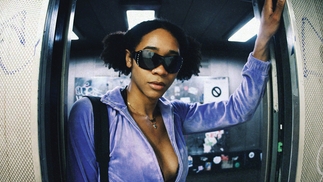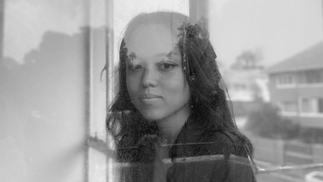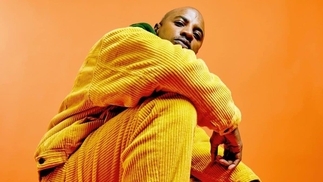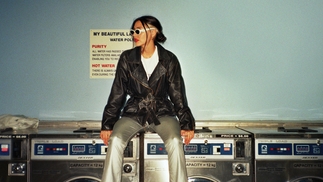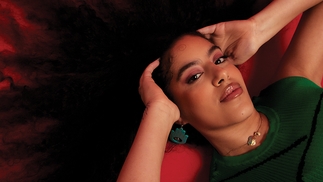Recognise: SNO
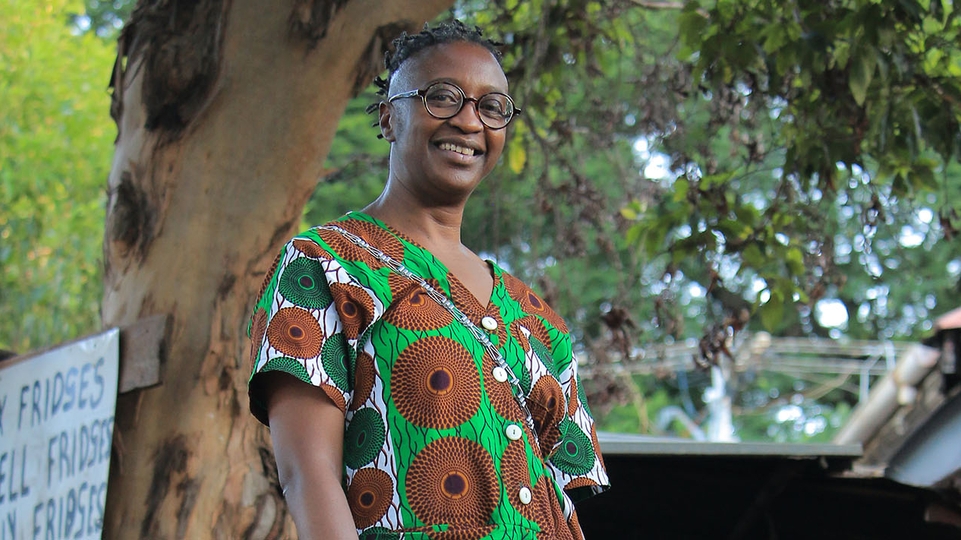
As likely to play South African hip-hop as she is Congolese rumba, Egyptian jazz or Brazilian boogie, Gauteng-born, Manchester-based SNO is spreading the word about music often overlooked by the Western industry. Alongside her genre-spanning Recognise mix, she speaks to Kamila Rymajdo about familial influence, her chance start in DJing and sharing the music she loves
As a child, SNO — whose DJ name is the acronym of her government name — would spend Sundays listening to records with her uncle. Spanning genres like jazz, disco and R&B, he introduced her to a range of artists, from Teddy Pendergrass and Whitney Houston to Miriam Makeba. Hailing from Bophelong, a small township near the city of Vanderbijlpark in the province of Gauteng, South Africa, she also got into house and hip-hop, which she says were the predominant popular genres when she was growing up in the 1990s.
When she started listening to music from other African countries, it was rather unusual, because South Africans were so focused on homegrown genres as well as those coming from America, she explains. SNO says her increasing interest in music from across the African continent stemmed from a realisation she had.
“I started making the connection between slaves and jazz music. Then I sort of realised that the roots of all music are in Africa,” she says over Zoom. African genres also appealed to SNO because she likes to dance. “I’m into music with a groove, so that’s why I’m attracted to, say, Congolese music — soukous or Congolese rumba — and highlife from Ghana.”
But music, while a passion, was never on the agenda as a career for SNO. She ended up working for a sports event management and consultancy company, which took her to Frankfurt in 2006 and to Manchester in 2007, where she’s still based today. It was while living in the Rainy City that SNO got a call from her cousin, who told her that her uncle had sold all his records, no longer having enough storage space after moving house. SNO was devastated — she’d always assumed she’d inherit the collection — and immediately began buying all the vinyl she could remember him having. “I went to [Manchester’s] Piccadilly Records and got all this jazz,” she recalls. “Herbie Hancock and Miles Davis, then I got some hip-hop records as well: Madlib, J Dilla, A Tribe Called Quest, Knxwledge.”
Despite the fact her collection was growing and she had DJ friends in Manchester, SNO still wasn’t thinking about playing out. It was only because a friend had double-booked himself that she ended up doing a four-hour set at the city’s Soup Kitchen club in 2015. “My friend said to the DJ playing before me, ‘Just show her how to cue up a record’. So he showed me and stayed with me for about three songs, and then after that he said, ‘You know what you’re doing, just carry on’.”
Another local selector was in the audience and asked SNO to record a set for his podcast. A regular show at Reform Radio followed, and then a residency at the city’s Deaf Institute venue, while Afro-centric record label and party Banana Hill asked SNO to join them in 2016.
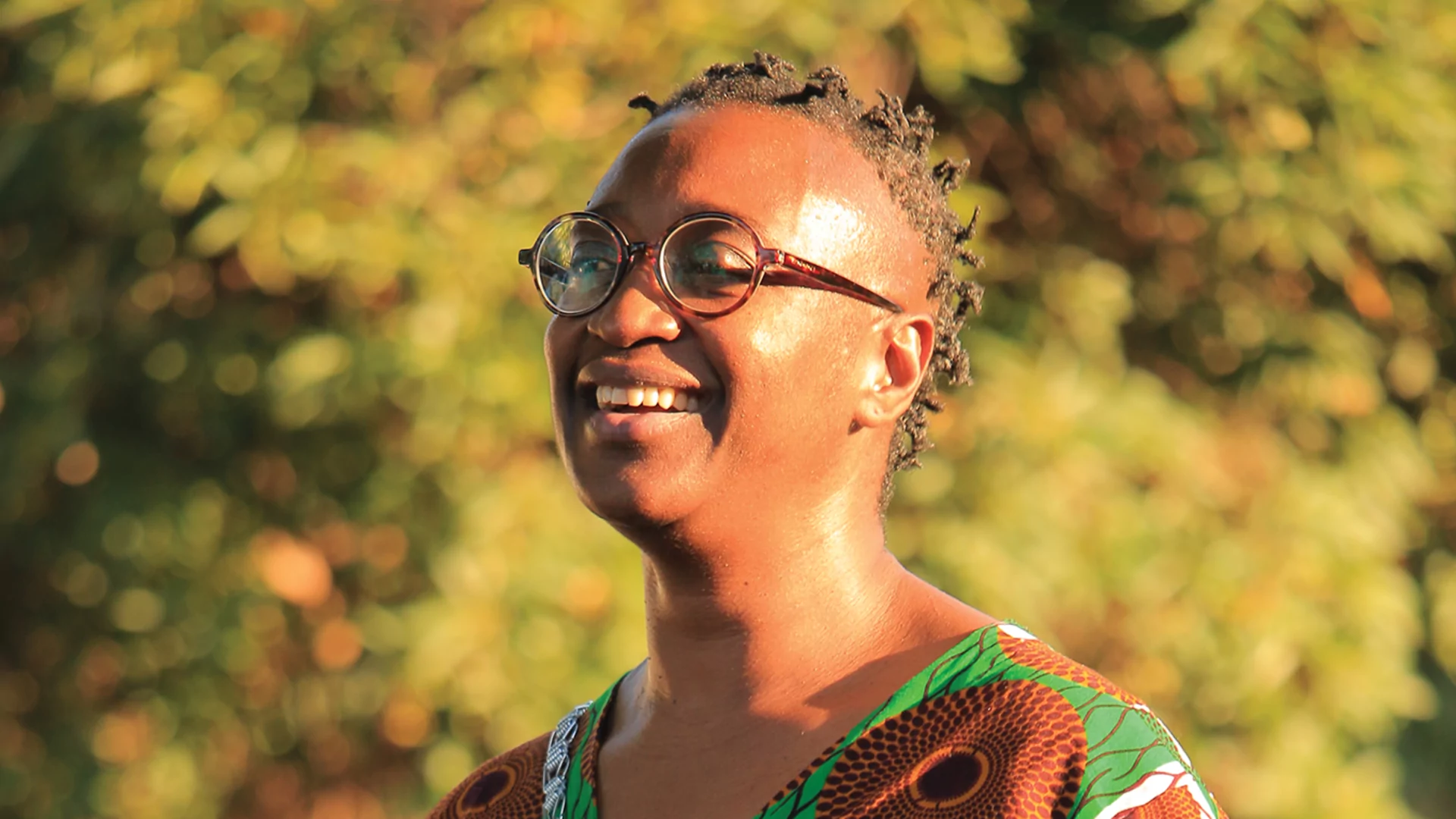
Even with a new career on the horizon, SNO asserts she was still collecting vinyl in the same way. “Just because I’m a DJ now doesn’t mean I buy music for other people or play music that’s popular. I buy records that I want to listen to in my apartment,” she says. As such, she describes her DJing style as eclectic. “I’ll play hip-hop in my set, I’ll play disco and jazz and funk, Brazilian boogie the psychedelic sounds of Cambodia, but I don’t plan it out the whole way through. I choose the first four or five songs and what I’d like to close my set with, but then I just go with the flow.”
That ‘flow’ seems to be an intuitively managed balance between what she wants to listen to herself and being able to read the crowd, resulting in an always-unique performance that’s also characterised by SNO’s high-energy dancing behind the decks. Indeed, her palpable passion seems to get her crowds revved up as much as the music does.
SNO’s meeting with Midland at Houghton Festival in 2018 perfectly sums up another aspect of her appeal as a DJ. “Him and his friends happened upon my set and ended up staying until the end,” she remembers. “Afterwards, he said to me, ‘90% of the songs you were playing I didn’t know, but basically it was fire and you’re now one of my favourite DJs’.” Similar praise has come from Gilles Peterson and Mr Scruff.
It’s true that there are few other young, UK-based DJs with quite such an encyclopaedic knowledge of African music as SNO. It’s a knowledge base that’s seen her play alongside the likes of Awesome Tapes From Africa, and one she’s committing ever more time to, saying she spent most of the pandemic diligently re-listening to all of her records. “I listened to most of my albums all the way through again, which was great, because when I started playing out after the break, I basically had all this new music,” she says.
But SNO also suggests there’s been a historic lack of interest in music coming from Africa, which stems from it being overlooked by the music industry for decades. “I feel like a lot of African musicians never got the big recording contracts,” SNO explains about what she perceives as a blind spot around African sounds from the 1970s and ’80s, preceding the now- worldwide appetite for genres like Afrobeats or gqom.
“Fela Kuti got a big recording contract, so that’s why when you talk about African music, immediately he’s the first person that comes to anybody’s mind, especially in Europe, but they don’t know about [DRC rumba singer] M’bilia Bel for example, or they don’t know about [Cameroonian makossa artist] Grace Decca,” she says. SNO says there’s also potentially a fear of cultural appropriation, which prevents some European DJs from playing African sounds.
“As a Black African woman, playing that music makes sense, but maybe for someone like a white male DJ to play that, it can seem problematic.” Still, despite a seeming lack of peers in the UK, SNO says she’s not trying to be a representative for African music. “I don’t want that responsibility,” she says, “I just have all these records that I like to play so people can know that there is this kind of music from this part of the world that’s great.”
She’s keen to profile new talent coming through, though, especially from South Africa, and she uses her radio shows — which now include an NTS residency — to do so. “I’m in a position to showcase these emerging artists, so I do,” she says, name-checking guitarist and producer Thabiso Thabethe and rapper Prodiiiiiii as artists she’s discovered on her annual trips back to South Africa for Christmas.
2021 saw SNO play the Warehouse Project twice, first at Repercussion Festival, and then at an event curated by Jamie xx, which she says was a highlight of her career so far. But her biggest ambition is not to perform at a particular venue or festival in the UK or Europe. “I’ve travelled to a lot of the countries whose music I love, but what I’d really like to do is play in all of those countries, to have a tour in Africa,” she says. Smiling, she adds, “Hopefully the universe is listening!”
Listen to SNO's genre-spanning Recognise mix below.
Tracklist:
Flora Purim ‘Portal Da Cor’
Jazzanova ‘Trés bein’
4Hero ‘The Awakening’
Fatima ‘La Neta’
Skinshape ‘Sudan (feat. Idd Aziz)’
William Onyeabor ‘Something You’ll Never Forget’
Joe Mensah ‘Africa is Home (Natural Self Re-Edit)’
Skinshape ‘Dourle (feat. Modou Tourè)’
Method Man & Redman ‘Mrs. International’
Kanye West ‘Celebration’
Jeru The Damaja ‘You Can't Stop The Prophet (Pete Rock Remix)’
Ok’Zharp & Manthe Ribane ‘Maybe This’
